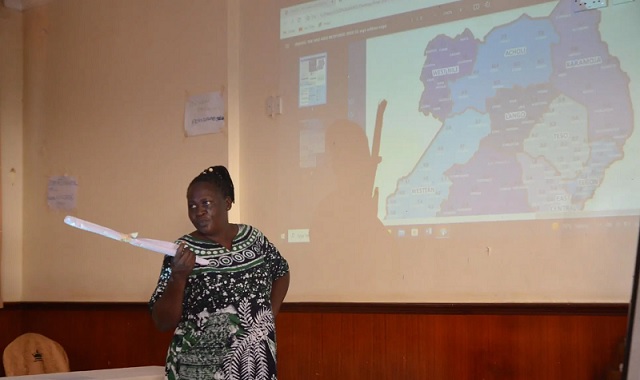
Gulu, Uganda | THE INDEPENDENT | Gulu health workers are suggesting a change in medicines that are being delivered for the treatment of HIV and Sexually transmitted infections (STIs).
They say the government continues to supply Ciprofloxacin, an antibacterial prescription which was found to be less effective as a first-line treatment for STIs and other opportunistic infections. The drug is also used to treat urinary tract infections, lower respiratory tract infections, and skin infections.
The HIV Focal Point Person for Gulu, Doctor Beatrice Acan is suggesting a change from Ciprofloxacin to Cefixime, which is emerging as a promising alternative treatment for HIV patients who are less responsive to standard therapy for new incident syphilis and other STIs.
Studies have found that Cefixime, administered orally, twice daily for 10 days is nearly 90 per cent successful in treating early syphilis.
Meanwhile, Victor Rwengabo, the Mid-North Zonal Coordinator of the Uganda AIDS Commission which comprises Acholi and Lango sub-regions noted that they continue to experience a lot of challenges in mitigating the spread of HIV and sexually related infections.
He told journalists during a health Café organized by Health Journalists Network in Uganda (HEJNU) in Gulu that Gulu and Lira are among the 31 districts out of 146 which contributed 60 per cent of the new 54,000 annual infections of HIV/AIDS. Rwengabo added that the region continues to register sexual violence like defilement and rape, as well as the presence of commercial sex workers and people with high risks of infections.
Other challenges, he mentioned include poor access to information and skills on HIV prevention, young girls being left out of critical HIV-related matters, early sexual debut, multiple sexual partners, peer pressure, gender inequality, intimate partner violence, and harmful traditional practices which give privilege to men.
Others are negative biological, social, and cultural factors, and constraints in access to resources.
UAC and the Gulu Regional health department say that they have now established mechanisms such as effective counselling of victims and survivors, promotion and emphasizing the use of condoms and enhancing Information and Communication (IEC).
Others are training stop ‘’GBV champions across the districts to create awareness of GBV, creating referral pathways, and follow-ups of survivors, and training Village Health Teams (VHTs) on managing and preventing HIV and STIs.
*****
URN
 The Independent Uganda: You get the Truth we Pay the Price
The Independent Uganda: You get the Truth we Pay the Price



